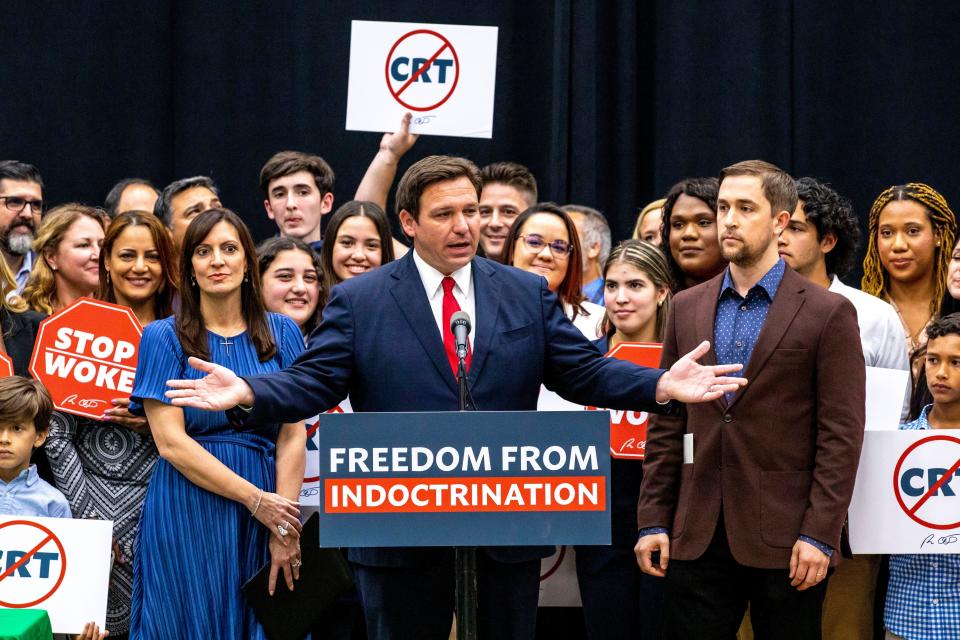Florida's universities have faced interference before
- Oops!Something went wrong.Please try again later.

Since his re-election last November, Florida Gov. Ron DeSantis has focused his attention on education, particularly higher education. With control over almost every office in the state government, DeSantis has taken aim at the one domain that has enjoyed some degree of autonomy: Florida’s colleges and universities.
Having set limits on faculty speech through the “Stop W.O.K.E. Act” of 2022, DeSantis now seeks to eliminate all university programs that promote diversity, equity and inclusion – and he has initiated a hostile takeover of New College of Florida. These moves have been widely publicized, and they are surely a prelude to DeSantis announcing his campaign for the 2024 Republican presidential nomination.
Not the first
It's worth remembering that DeSantis is not the first Florida politician to try to impose his will on our system of higher education. During the late 1950s and early 1960s, state Sen. Charles Johns led a committee that attempted to identify civil rights activists and communists in the universities; eventually, the Johns Committee also expanded its witch hunts to include people in the LGBTQ community.
Many lives were ruined, and the intellectual climate on Florida campuses became very chilly indeed. This abuse of power was so egregious that the Florida Legislature established the Florida Board of Regents in 1965 to serve as a buffer between the state's universities and its politicians.
However, even that buffer could be eliminated. In 2001, Gov. Jeb Bush wanted to abolish affirmative action in Florida’s universities, and the Board of Regents resisted the move. In frustration, Bush persuaded the Legislature to dissolve the Board of Regents and establish a Board of Trustees for each institution in the State University System. (All of its trustees were appointed by Bush.)

Bush’s overreach sparked an effort, led by U.S. Sen. Bob Graham, to propose an amendment to the Florida Constitution that would create a new governing body for the state university system, the Florida Board of Governors. The amendment, which passed easily, stipulated that the Board of Governors could only be abolished through another constitutional amendment.
Significant constraints
To be clear, Florida’s universities and their professors operate under significant constraints. The universities are answerable to the Board of Governors and to their own Board of Trustees. Faculty are held accountable by university administrators – and also by their peers. Faculty are subject to regular reviews and, in cases of tenure and promotion, their research is evaluated by appropriate peers from other universities.
Within these limits, faculty and their students enjoy the freedom to think, to question, to experiment, to learn from the past and to grapple with the issues of contemporary life. This is the American system of higher education, and it is the envy of the world.
Ron DeSantis was re-elected as Florida’s governor, not as its dictator. If DeSantis will not tolerate disagreement, and if faculty and students fear reprisals for asking the wrong questions and adopting the wrong intellectual positions, our universities will cease to be institutions of higher learning – and we will be well down the road of thought control by the state.
To borrow a phrase from the governor, that would be indoctrination – not education.
Stephen Miles served as provost of New College of Florida from 2011 to 2017. He is a professor emeritus of music at New College.
This article originally appeared on Sarasota Herald-Tribune: DeSantis isn't the first politician to meddle with Florida's colleges

